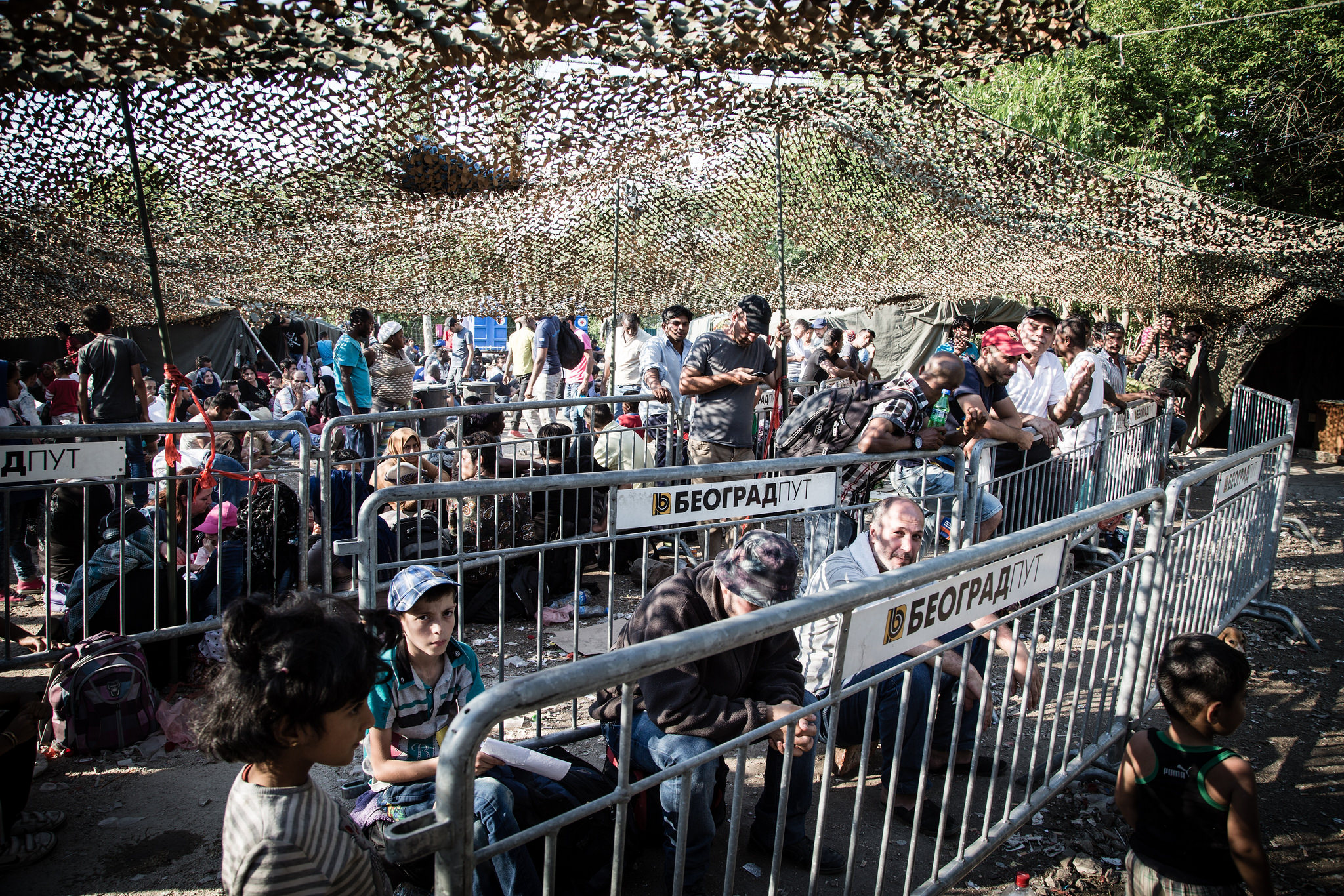Serbia goes to the polls on April 2nd to elect a new president and so far the campaign has not focused heavily on migration or asylum. Instead, with Aleksander Vucic, the current PM and head of the Serbian Progressive Party (SNS) leading the polls (IPSOS has him at over 50%), and his greatest competitor being a “mock” candidate referred to as “Beli“, most campaign rhetoric from other candidates has focused on criticism of the current government as well as longstanding issues like Kosovo, NATO and corruption.
Nevertheless, Serbia has been heavily impacted by the refugee crises in the last year, primarily as a transit zone for asylum seekers moving north, and at least one candidate has decided to make it part of his campaign.
“I’d like how Viktor Orban got the barbed wire, and if that’s not enough we’ll put in minefields.”
During an interview with RTS, Seselj explained that it would be necessary to use military means to prevent migrants from entering the country, including barbed wire, minefields, or border guards. “It must be ensured that neither side is entering illegally, because of Germany’s plan for Serbia to be a buffer zone,” he said. He also criticized Vucic for meeting with German chancellor Angela Merkel, and suggested that Germany had plans to expel millions of migrants to Serbia.
Seselj is running for president for the sixth time under the Serbian Radical Party banner. A familiar figure in Serbia, he’s probably best known for his role as deputy PM under Slobodan Milosevic in the late 90’s where he led a campaign of ethnic cleansing and called for the establishment of a Greater Serbia, and his subsequent related trial and acquittal for war crimes and crimes against humanity at the International Criminal Tribunal for the Former Yugoslavia (ICTY).

Seselj isn’t the only candidate to use bold language discussing migration issues. Vuk Jeremic, a former member of the Democratic Party who served as foreign minister from 2007 -12 and as ex-UN General Assembly president, spoke out against a proposed highway connecting Nis and Tirana, saying it could become the backbone of a “Greater Albania”. Albanians come to Serbia “every weekend to buy land, apartments and houses. Don’t we have enough of them [Albanians]?,” he said at a rally in Nis. The comments created a significant backlash on social media.
Nevertheless, rhetoric like this doesn’t make much of a splash in an election campaign characterized by some truly outlandish mudslinging. For instance, a Progressive Party member accused Jeremic’s wife Natasa of being Serbia’s chief drug lord by (a claim she vigorously denies). Meanwhile, the Liberal Democratic Party (LDP) called for a re-examination of the role of Seselj in the 2003 assassination of PM Zoran Đinđić, after Seselj claimed that he would pardon Đinđić’s convicted assassin if he were elected president. In this atmosphere, derogatory comments about migrants or refugees are unlikely to be the deciding factor in the campaign, but they are worth noting.

